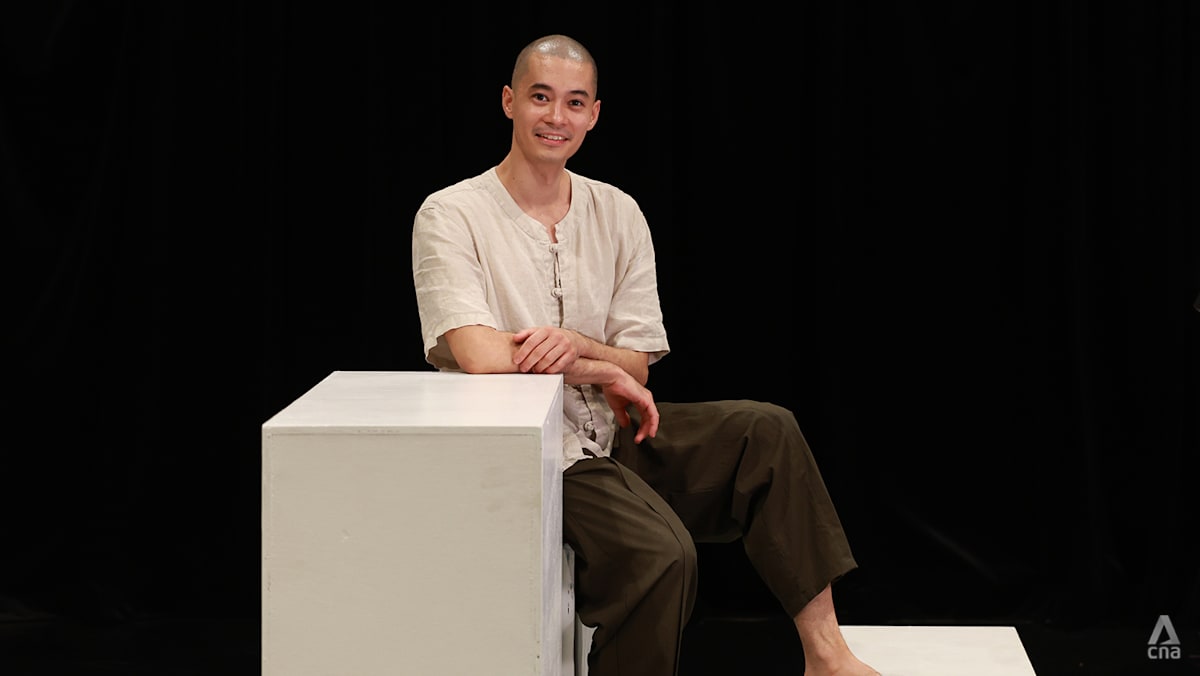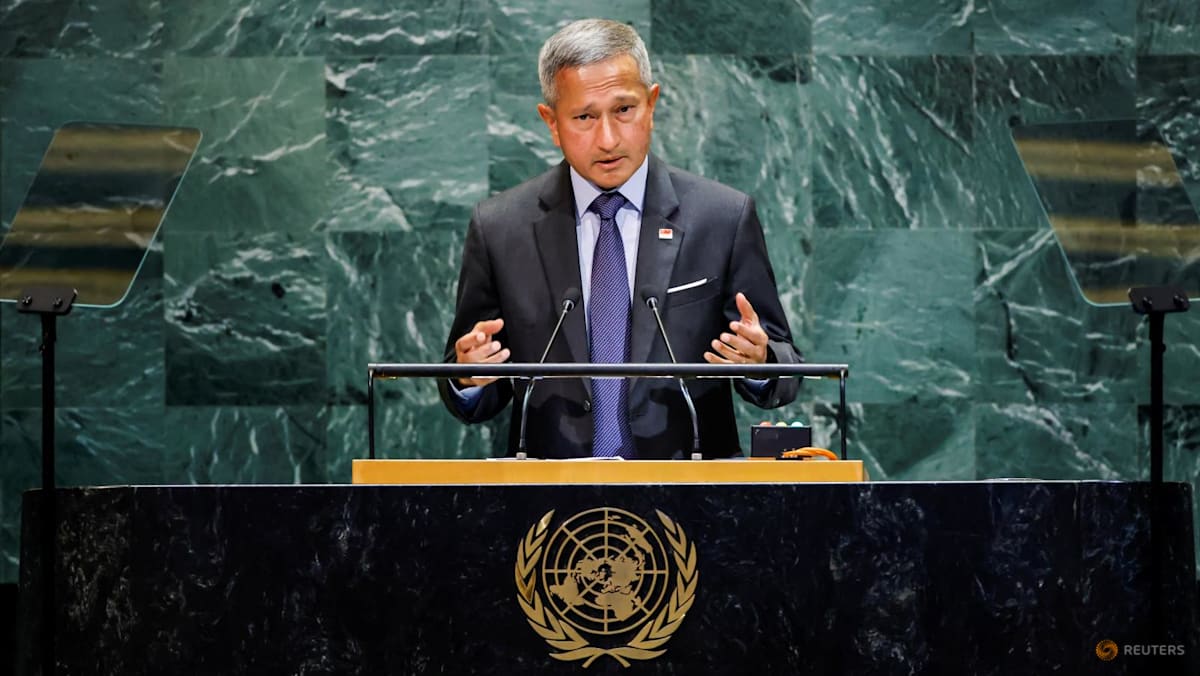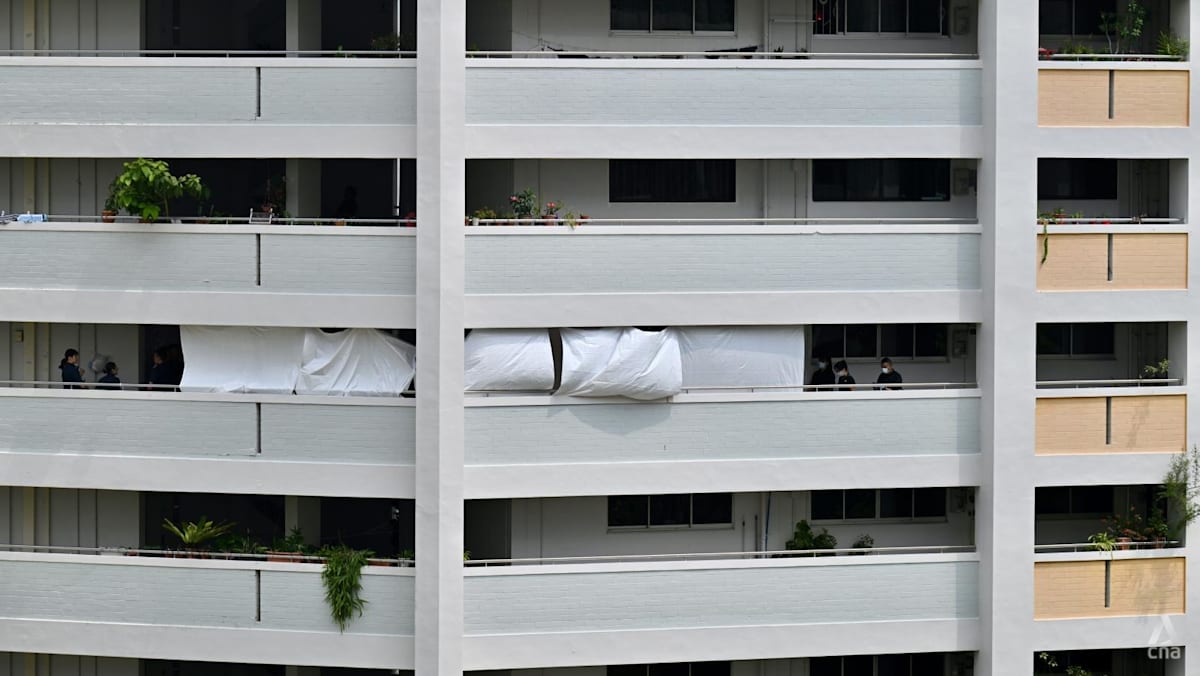Dr Balakrishnan’s remarks on Sunday came as the UN marked 80 years since the end of World War II. The multilateral system, founded on international law, enabled small states like Singapore to flourish, he said.
This post-war world order “has come to an end”, Dr Balakrishnan said. The current distribution of economic weight, technological sophistication and military strength is “very different from the world of 1945”.
“It is obvious that the UN and the other international organisations have not evolved to keep up with the times,” he said.
Dr Balakrishnan pointed out that the world today has become “more turbulent, more uncertain, and in some places, more violent”.
“The erosion of respect for the principles of the UN Charter, the egregious violations of international law and of international humanitarian law, have unfortunately become common, as have violations of sovereignty and territorial integrity.”
The wars in the Middle East, Ukraine and parts of Africa reflect this tragedy, Dr Balakrishnan said. He reiterated that Singapore will reconsider its position on recognising the Palestinian state if Israel “takes further steps to extinguish a two-state solution”.
The geopolitical shifts have also disrupted the multilateral and economic trading system, he said.
“Decades of progressive trade liberalisation and investments expanded opportunities and prosperity all over the globe. But today those are at risk. The tariffs, the export controls, are being used as levers to secure unilateral advantage, including sometimes to address non-trade related issues.”
“DOUBLE DOWN ON MULTILATERALISM”
Despite the prevailing pessimism, Dr Balakrishnan said small states like Singapore cannot afford to be passive.
The multilateral system, underpinned by the UN, remains the best way to uphold global peace and prosperity in a “fair and inclusive way”, he said.
“We’re here to call on all of us to double down on multilateralism founded on international law,” he said. “Even small states and middle powers have agency and we have strategic autonomy to collectively protect our long-term national interests and the global commons.”
He cited “success stories” such as the ratification of the BBNJ Agreement, a legally binding treaty to conserve and sustainably use marine biodiversity beyond national jurisdiction, which show that the multilateral system still works.
Dr Balakrishnan also said Singapore has nominated its Ambassador for International Law Rena Lee to serve as a judge on the International Court of Justice (ICJ) next year.
“Our nomination underscores Singapore’s deep commitment to upholding international law and support for the ICJ,” he said, noting that if elected, she would be the first woman and only the second person from Southeast Asia to serve on the ICJ.
He concluded by quoting Singapore’s first Foreign Minister S Rajaratnam: “Despite cynics who focus attention on its many shortcomings, Singapore has faith in the future of the United Nations simply because without it there is no worthwhile future for humanity.”
“These words still ring true today,” Dr Balakrishnan said. “So together, let us ensure that this institution continues to serve as humanity’s best hope for peace and prosperity for all of us.”













